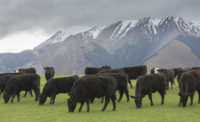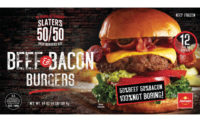Making the big move

Every small business owner dreams of success, and a natural byproduct of that success is growth. In the meat and poultry industry, that growth could come from new product lines, new pieces of equipment or hiring more employees. Eventually, owners may find that their growth can no longer be contained under one roof.
Country Archer Provisions has grown so much in recent years that it has expanded multiple times. Last year, the company opened a marketing hub in Los Angeles. This year, the company announced to move to a new location in its Santa Barbara, Calif., home. Eugene Kang, CEO and co-founder, attributed the moves to the company’s explosive growth.
“We are significantly outpacing overall jerky and meat snack growth, outperforming the natural products meat snacks sub-category [as defined by SPINS database (NPI)] by 295 percent and the category overall by 550 percent,” he said.
Country Archer secured an investment from Monogram Capital Partners last year, which helped expand production at its current facility to double output capacity. It soon became clear that the company would need to move to a larger operation. Kang specifically wanted to stay in San Bernardino and maintain the company’s commitment to the Inland Empire. The 72,000-square-foot location that the company found will expand its manufacturing footprint by two-and-a-half times.
“While we needed a new space quickly, we knew we couldn’t rush the process,” Kang says. “For our facility, we wanted to make sure the new space would enhance our manufacturing operations, while keeping everything in-house. This helps us stay true to our heritage and core values of sustainability, authenticity and real ingredients.”
The company’s move is set for late Spring, 2020.
Verde Farms, a grass-fed beef company, recently moved into its first processing facility. The company has had a long-term relationship with a cold storage facility in Mullica Hill, N.J. Last year, it leased space within the facility and moved in equipment and operators to produce ground beef. Dana Ehrlich, the company’s founder and CEO, says that the company will be adding new production capabilities later in the year.
Ehrlich says that ramping up a room for meat production involves much more than setting up machines.
“There’s all the personnel, from the line workers to production supervisors. There’s making sure your mechanical, your sanitation, your QA, all your supporting infrastructure is in place. There’s working with the USDA to get your grant of inspection, organic certification, your SQF. The equipment’s an important part, but there are a lot of other components that have to go into it, and all have to be coordinated to scale up and run efficiently,” he says.
Verde started with 10 employees on a highly automated line.
“One of the things that we’ll be working on in addition to expanding capacity within the room is expanding what we’re responsible for,” Ehrlich says of the company’s future plans. “We’ll take over all the shipping/receiving, all of the pallet positions and some additional equipment. So we’re likely to expand the number of employees, probably to 25, later this year.”
Looking for a reprint of this article?
From high-res PDFs to custom plaques, order your copy today!






